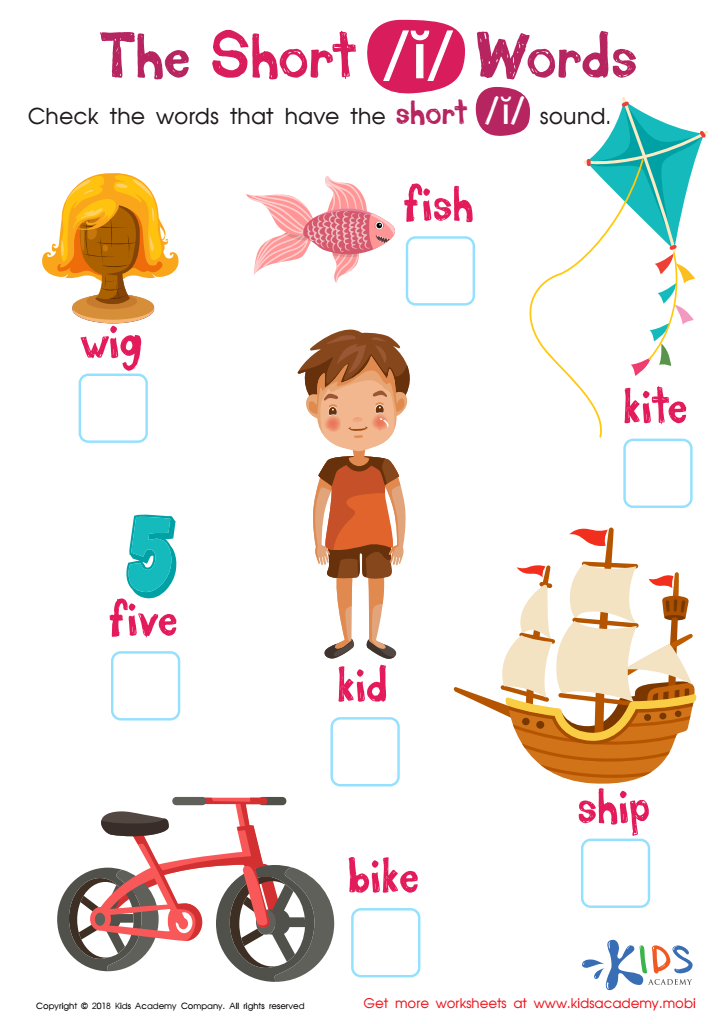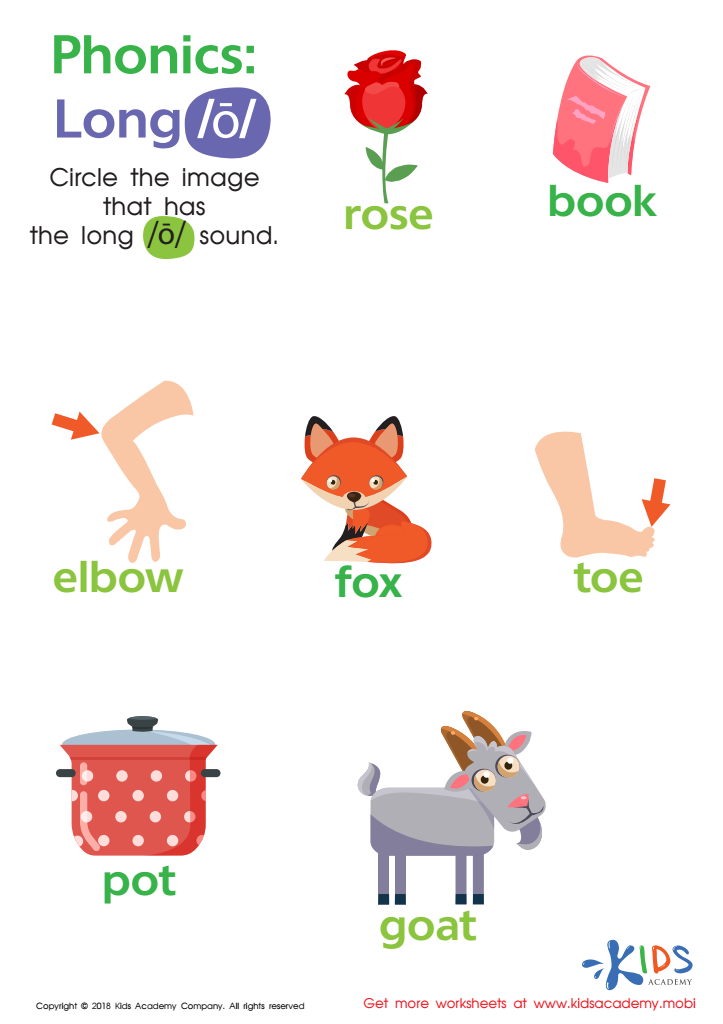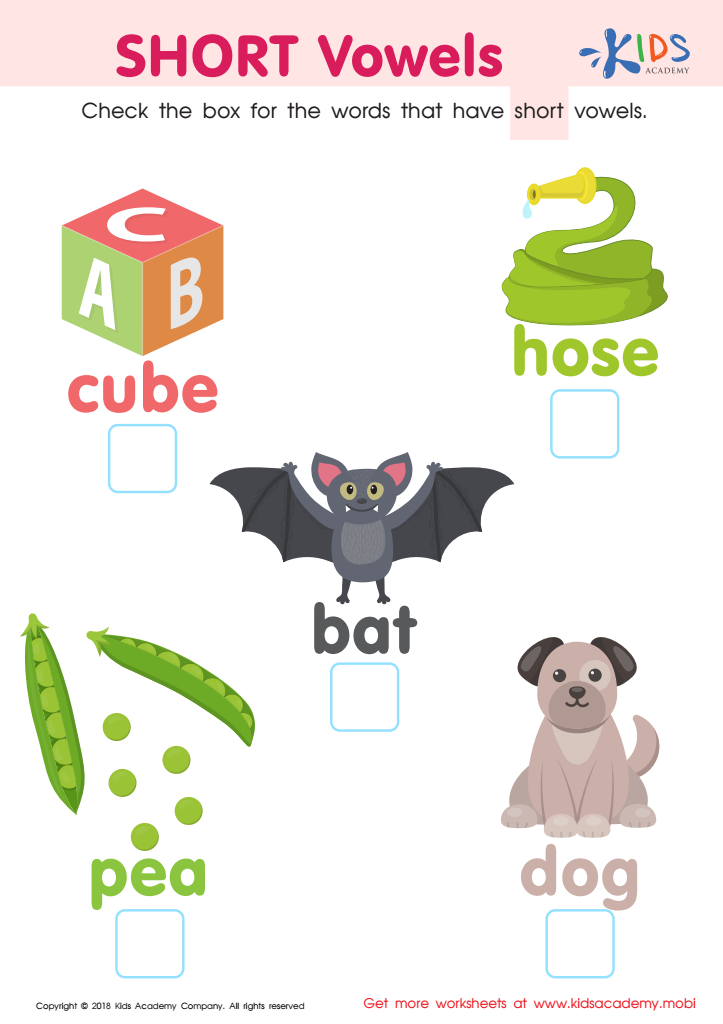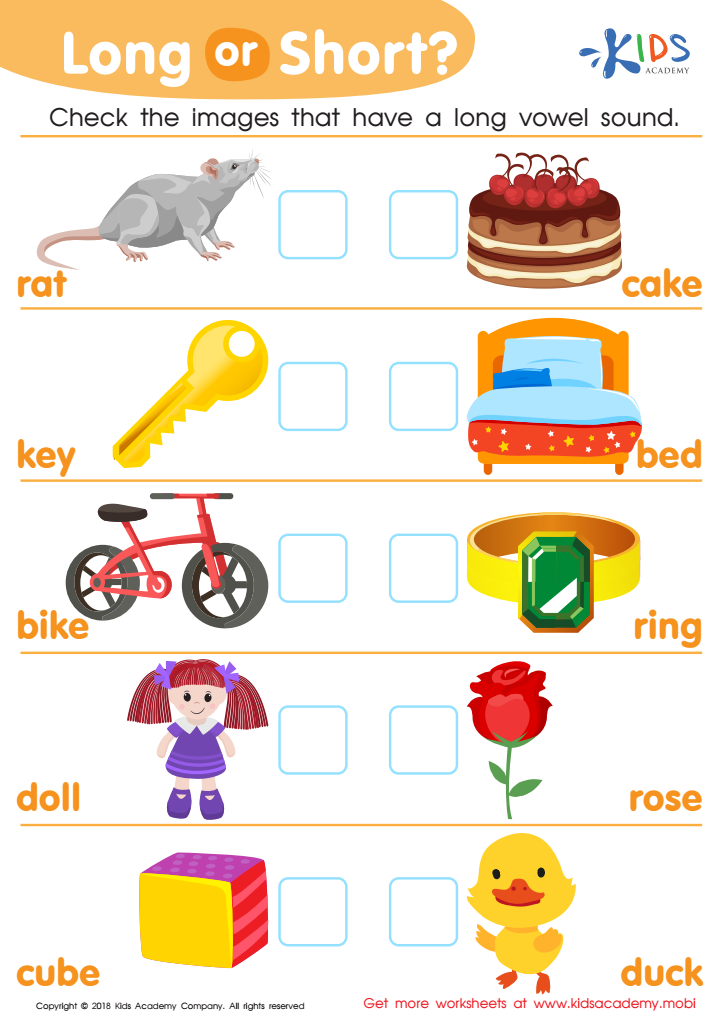Vocabulary enhancement Normal Vowels Worksheets for Ages 4-5
4 filtered results
-
From - To
Discover our engaging Vocabulary Enhancement Normal Vowels Worksheets designed specifically for children ages 4-5! These interactive worksheets focus on reinforcing letter sounds and improving vocabulary through a fun, playful approach. Ideal for early learners, they feature colorful illustrations and age-appropriate activities that promote recognition of normal vowels, helping kids build essential phonics skills. By integrating exciting games and exercises, our worksheets encourage independent learning while enhancing language development. Perfect for use at home or in the classroom, these resources empower young learners to develop essential literacy skills effortlessly. Dive into a world of learning and watch their vocabulary soar!


The Short I Words Reading Worksheet


Phonics Long O Reading Worksheet


short vowels Worksheet


Long or Short Reading Worksheet
Vocabulary enhancement, particularly through normal vowels, is crucial for children aged 4-5 since this stage is foundational for language development. During these early years, children are typically expanding their vocabulary at a rapid pace; therefore, equipping them with robust phonetic skills and an understanding of vowel sounds can significantly impact their overall literacy.
Firstly, normal vowels are critical building blocks in language acquisition. Recognizing and manipulating vowel sounds helps children decode words, improving their reading skills and comprehension. By focusing on vowel enhancement, teachers and parents can facilitate word recognition, thereby supporting children’s reading fluency.
Furthermore, enhancing vocabulary not only bolsters language skills but also encourages effective communication. Children equipped with a richer vocabulary can express their thoughts and feelings more clearly, fostering better interactions with peers and adults.
Additionally, engaging activities focusing on vowel enhancement can stimulate cognitive development, promoting critical thinking and problem-solving skills. As students actively participate in learning, their confidence grows, creating a positive feedback loop helping them become avid learners.
In summary, prioritizing vocabulary enhancement, particularly regarding normal vowels, empowers young learners, setting a secure foundation for their future academic and social success. Parents and teachers play pivotal roles in cultivating these essential skills.

 Assign to My Students
Assign to My Students











